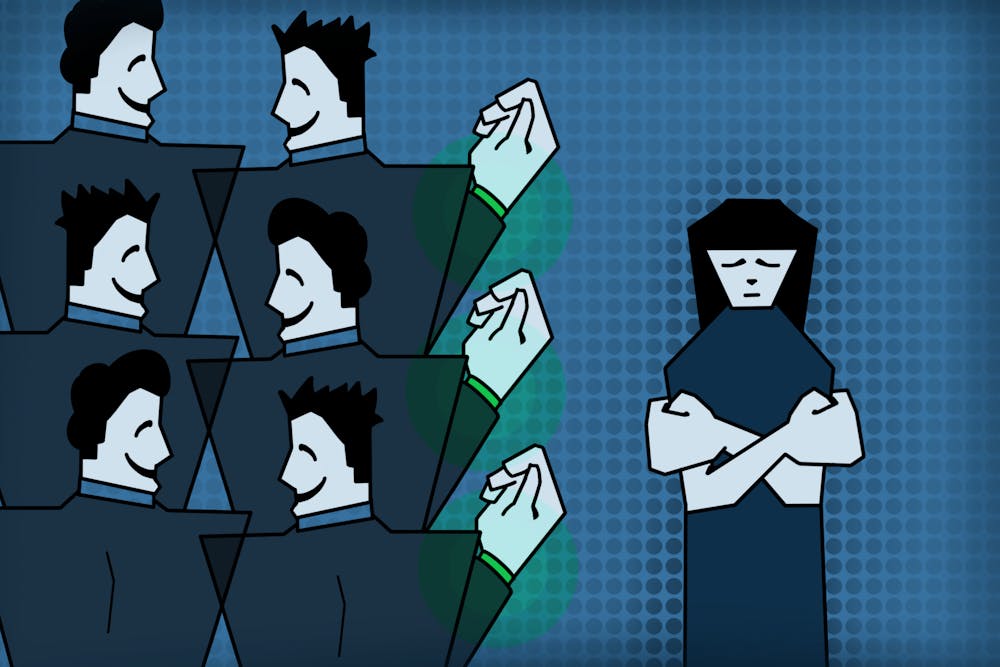Mental health has long been dictated by media portrayal and monetization, but the recent online commercialization of wellness may have derailed the conversation from its core subject to one of speculation and scandal.
As conversations were becoming more mainstream, celebrities like Lady Gaga, Selena Gomez, Demi Lovato and more speaking about their mental health issues has started to squash the stigma around mental health in pop culture.
Being famous is often synonymous with immense pressure to maintain a pristine public image. The compulsion to uphold a perfect perception was in part due to a world before TikTok and its rise of parasocial relationships, where shattering your reputation by confessing to a flaw was unheard of.
Celebrities openly discussing their mental health have even been applauded for their honesty, which has led to conversations about changing the narrative on mental health.
While the stigma against mental health certainly exists, a number of resources are available to those who might need them.
"Instead of (mental health) being something that you should feel embarrassed about and be ashamed about, it is more accepted and people recognize it more," said Ann Guthery, a clinical assistant professor at the Edson College of Nursing.
Someone looking for support may easily come across a number of ways to receive it, but not all sources are reliable. It was recently revealed that BetterHelp, an online counseling and therapy service, was selling their customers' data to advertisers.
It was also uncovered that Jay Shetty, a British author, podcaster and life coach whose content was based in life and self-help advice, had been lying about the legitimacy of his backstory and his claim to fame. Shetty has built quite an empire for himself, boasting an interview with former President Joe Biden, an episode on The Ellen DeGeneres Show and many celebrity friends.
According to the Guardian, Shetty charges $7,400 a term for a course equivalent to a master's degree. Despite Shetty's claims that the course is accredited, the company his certification school pays to evaluate and certify its accreditation told the Guardian the information on Shetty's website might be misleading.
Courses by streamers and YouTubers have often been criticized for being cash grabs, so this move into the mental health industry was disappointing for many consumers.
Even though BetterHelp has made some amends and there are some reliable mental health sources on the internet, the future of mental health conversations seems uncertain as distrust becomes more commonplace.
"It's definitely a problem; these podcast influencers are everywhere," said Jackson Hamblin, a junior studying nonprofit leadership and management. "People just need to check their sources. That's the most important thing right now."
As a consumer, it might seem like companies and influencers use the subject of mental health for personal gain. Hamblin said that influencers might not always know what they are talking about.
"Give a person a mic and they'll say anything," Hamblin said.
READ MORE: Counseling services are easier to find than students think
Despite there being a number of well-intentioned mental health awareness initiatives online and in person, these actions by a few from the crowd might lead to a growing suspicion of mental health media among consumers.
"False diagnosis is a big thing right now ... where people are just like, 'Oh, I have anxiety,'" said Vianny Arroyo, a sophomore studying fashion. "It's a tiny saying that can be played as a joke, but not really as a joke."
Both Hamblin and Arroyo believe that the discourse online surrounding mental health has good and bad sides. While the internet is a valuable resource filled to the brim with available information, Hamblin recommends that consumption of this information must be done with careful consideration.
"Personal research is really important," Hamblin said. "And taking everything people say on podcasts with a grain of salt, doing your own research and not listening to everything a stranger has to say on a website."
Spreading awareness is also something that might help combat this distrust. Guthery said that this awareness is causing more and more referrals being made for counseling or psychiatry. The hope for better mental health facilities brings people together.
"We are in the time right now that, as things get more wild the world, and as things keep on happening, people are learning to be a little more together on beliefs," Arroyo said.
Edited by Andrew Dirst, Abigail Beck and Natalia Jarrett.
Reach the reporter at ktale@asu.edu and follow @KasturiTale on X.
Like The State Press on Facebook and follow @statepress on X.
Kasturi is a sophomore studying journalism. This is her third semester with The State Press. She has her own blog and has worked in creative writing.




